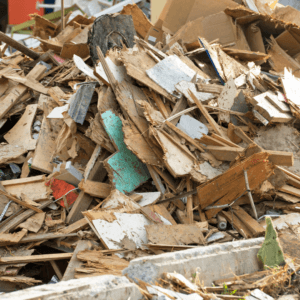Contamination: Are your quality control measures effectively reducing contaminants in your biomass?
Contamination occurs when something unwanted or dangerous pollutes or poisons a material, making it harmful and unsuitable or unfit for use.
For virgin or recycled biomass, these attributes can cover a wide range of properties and materials that may be naturally occurring, present by previous usage or at worst due to adulteration. It is not always easy to identify why these materials may be present but eventually, consequences may present themselves in processing or within the combustion plant.
HOW CAN CONTAMINATION AFFECT MY PLANT PROCESSES?
Across various biomass fuels, there are seriously detrimental results arising to plants causing material handling corrosion, boiler and superheater corrosion, slagging, fouling and emission to air.
 Certain fuels are more problematic than others. Wood (with some exceptions) performs well, however, agricultural residues can provide challenges, largely due to their mineral composition and content. Higher levels of Sodium, Potassium, Silicon, Chlorine and Sulphur are typically present when compared to wood, substances that lend themselves to slagging, fouling and corrosion through the formation of low melting salts during combustion.
Certain fuels are more problematic than others. Wood (with some exceptions) performs well, however, agricultural residues can provide challenges, largely due to their mineral composition and content. Higher levels of Sodium, Potassium, Silicon, Chlorine and Sulphur are typically present when compared to wood, substances that lend themselves to slagging, fouling and corrosion through the formation of low melting salts during combustion.
The latter two, especially Chlorine may also be present in virgin wood at higher than anticipated levels through salt spray, wind drift from marine environments, or uptake from soil geology, particularly in wood in arid climates. With recycled wood, Chlorine and Sulphur are typically present from chemical treatments, contamination by plastic or, in the case of Sulphur, from Gypsum.
WHAT DOES THIS MEAN FOR OPERATIONS?
Corrosion issues may eventually arise, however, the most likely indicator of a Chlorine and Sulphur issue will be emission exceedances, alarms and increased usage of pollution control chemicals with increased consequential disposal of spent residues termed APCR (Anti-Pollution Control Residues).
HOW CAN ALFRED H KNIGHT HELP?
At Alfred H Knight, we provide a dedicated and comprehensive fuels and process residue testing service from our ISO17025 accredited laboratories. We utilise a wealth of experience in sampling and sample preparation to ensure all samples are collected, handled and tested in a quality manner. With highly-trained personnel working to internationally recognised standards, we help clients get the most accurate and reliable results.
If you would like to speak to an expert to see how we can help you identify contaminants within your fuels, get in touch today via our contact page.